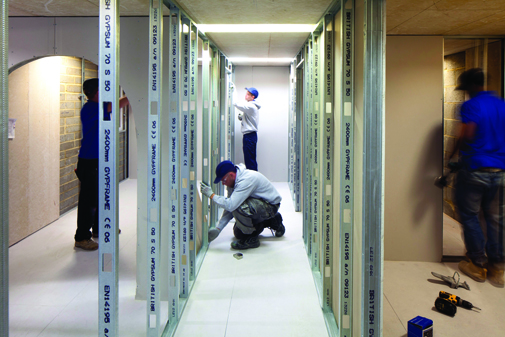Hard to think it is only five years until the next general election in 2020.
Where will the construction industry be in 2020? For battered Britain the cuts will have at last come to an end. It’ll be 10 years since the Coalition came to power with a promise that the world of austerity would be over by 2015. Then, it was 2017. So what can we, as an industry, expect during the life of the next parliament?
Undoubtedly there is the huge challenge posed by the lack of the required skills in a construction industry seemingly still subject to cycles of boom and bust. Employment levels are rising but the industry lost 35,000 skilled workers in the recession, and the number of construction apprenticeships fell sharply as workflow reduced.
Meanwhile, widespread dissatisfaction persisted over the administration of the industry levy which funds trade skills training. There have been welcome actions from CITB to address these problems. The changes in the levy will simplify the bureaucracy, and specialist contractors will be better able to plan for its costs.
One of the key strategic aims for the newly branded FIS, formerly AIS FPDC, is training and ensuring that there is a fully qualified workforce to NVQ level 2. There are also plans for a new training portal to match employers with new trainees, apprentices and the right courses.
But still the interiors sector needs more new entrants. It won’t be able to rely on topping up labour with imported skills. The sector should be calling on the new government and insisting on working with the Department for Education to make sure that school age pupils receive informed and timely careers advice on working in our sector.
In a skills-strapped construction sector, all contractors, especially specialists, can start to pick and choose who they want to work for. So any potential client, if they have not done so already, better start playing (or should it be paying) properly.
Late payment is a big issue in the construction industry and all too often payment is delayed by weeks, which can cause serious cash flow problems. The Prompt Payment Code hasn’t helped as most businesses don’t take much notice of it, and the Supply Chain Payment Charter lacks real teeth.
The Planning for Growth report from Bibby has again shown that late payment is the top issue stifling the industry’s growth, with 53 per cent of SMEs stating it is the key challenge. Almost half of construction firms (47 per cent) see a shortage of skilled workers as one of the biggest threats to their business.
My wish for 2020? It is that skills and payment are problems that have been confined to history.
Adrian JG Marsh
Editor


